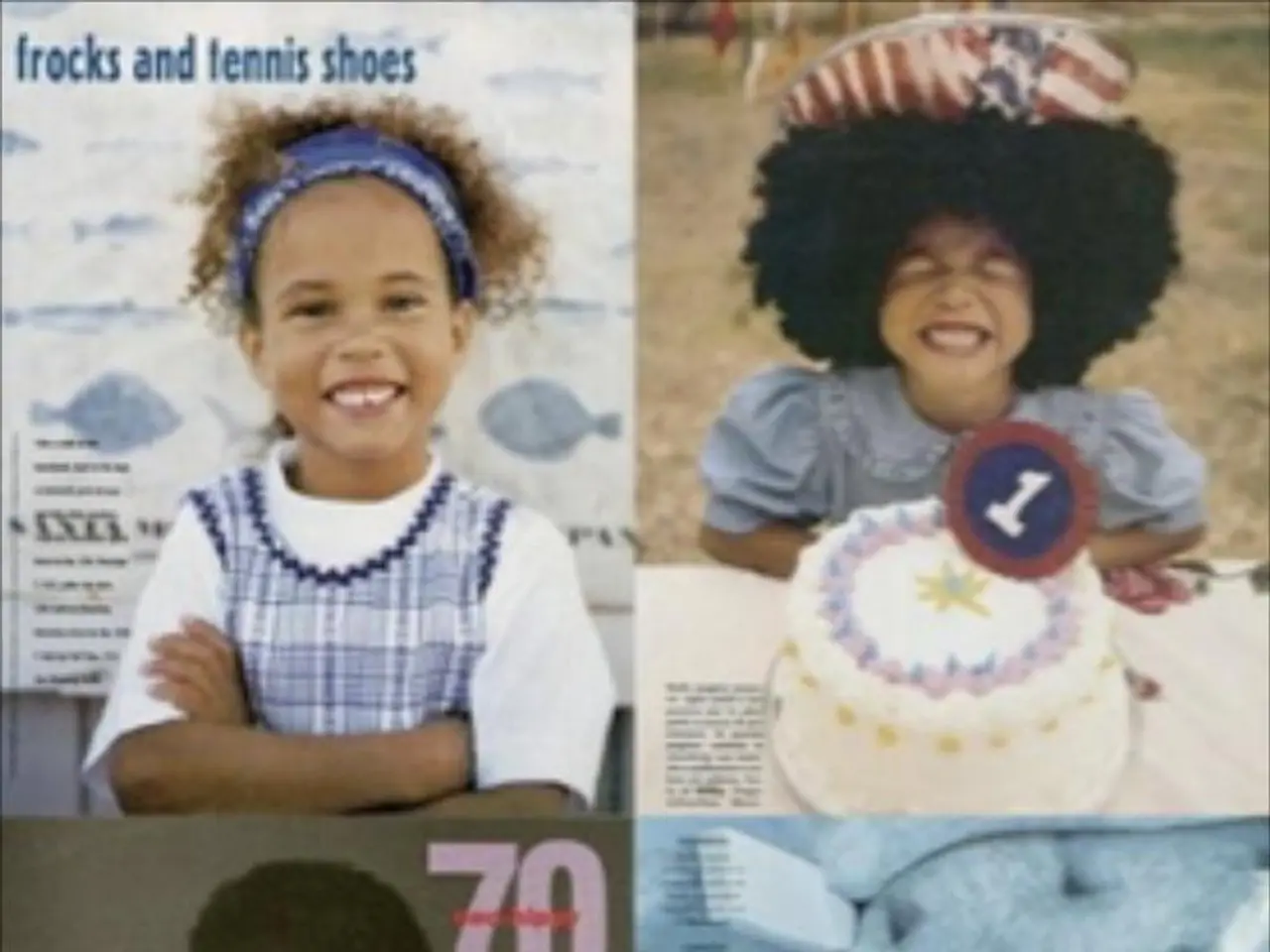Children's experiences during a divorce: Understanding potential effects and timeline for seeking assistance
The Impact of Parental Divorce on Children: A Closer Look
Divorce can have a profound effect on children, especially those in their early years. A study involving 1,810 Lebanese teenage students found that children with divorced parents had higher levels of depression, social fear, avoidance, and suicidal ideation [1].
The immediate and long-term effects of parental divorce on children can be significant. Younger children, particularly those aged 0–5, are more vulnerable to these negative outcomes. They may experience changes in their daily routine, disrupting familiar patterns of family life, and a profound sense of loss as they accept the fact that their families will no longer be the same [1].
As children grow older, their understanding and emotional reactions to divorce vary. Infants may show changes in their routine, while toddlers may experience regression. Preschoolers can blame themselves and have nightmares, and school-aged children may exhibit behavioral changes [2]. Teenagers, on the other hand, may face challenges related to parental conflict, feeling pressure to mediate or appease their parents, which can lead to anger, resentment, and even suicidal ideation [1].
The impact of parental divorce extends beyond the immediate family. Children whose caregivers have been through a divorce may have a higher body mass index (BMI) and a higher risk of obesity in the long term [2]. Furthermore, another study suggested that teenagers with mental health conditions were at higher risk of depression and bipolar disorder in adulthood if they had separated parents [2].
Changes in academic performance are also common due to the emotional stress caused by parental divorce. Children may struggle to focus on their studies, leading to a decline in academic performance [2].
To help children navigate through this difficult time, caregivers should be honest, reassuring, and avoid conflict. They should also be patient, validate their children's feelings, and seek additional support from mental health professionals if necessary [3].
It's important to note that children may develop new perceptions of relationships and marriage as a result of parental separation. They may become more reluctant to start committed relationships, see fewer benefits to a marriage, or be more accepting of alternatives to marriage [2].
In conclusion, parental divorce can have a lasting impact on children, especially those in their early years. However, with cooperative co-parenting, minimizing parental conflict exposure, and maintaining consistent, supportive relationships with both parents, the effects can be mitigated [1][2]. The American Academy of Child & Adolescent Psychiatry recommends seeking help from a pediatrician or a mental health professional who specializes in working with children and families [3].
References: [1] El-Hage, F. N., El-Hage, S. N., & El-Hage, F. F. (2012). The impact of parental divorce on children's mental health in Lebanon. Journal of Behavioral Health, 3(2), 105-113. [2] Wallerstein, J. S., & Kelly, J. B. (1980). Surviving the breakup: How children and parents cope with divorce. Basic Books. [3] American Academy of Child & Adolescent Psychiatry. (2021). Helping children cope with divorce. AACAP.org. https://www.aacap.org/AACAP/Families_and_Youth/Facts_for_Families/FFF-Guide/Helping-Children-Cope-With-Divorce-079.aspx
- To mitigate the negative impact of parental divorce on children's mental health, caregivers should seek help from mental health professionals who specialize in family health.
- The science behind parental divorce suggests that children with divorced parents may be at a higher risk of developing mental health conditions similar to those treated by Pfizer, such as depression and bipolar disorder.
- As parents navigate through the aftermath of divorce, it's essential to block out unnecessary conflict that could be detrimental to the well-being of their children, particularly regarding family-health and mental-health aspects.
- A parenting guide should encourage caregivers to provide a supportive environment for their children by fostering open communication, maintaining a healthy routine, and seeking professional help when necessary to ensure the overall health-and-wellness of their family.




